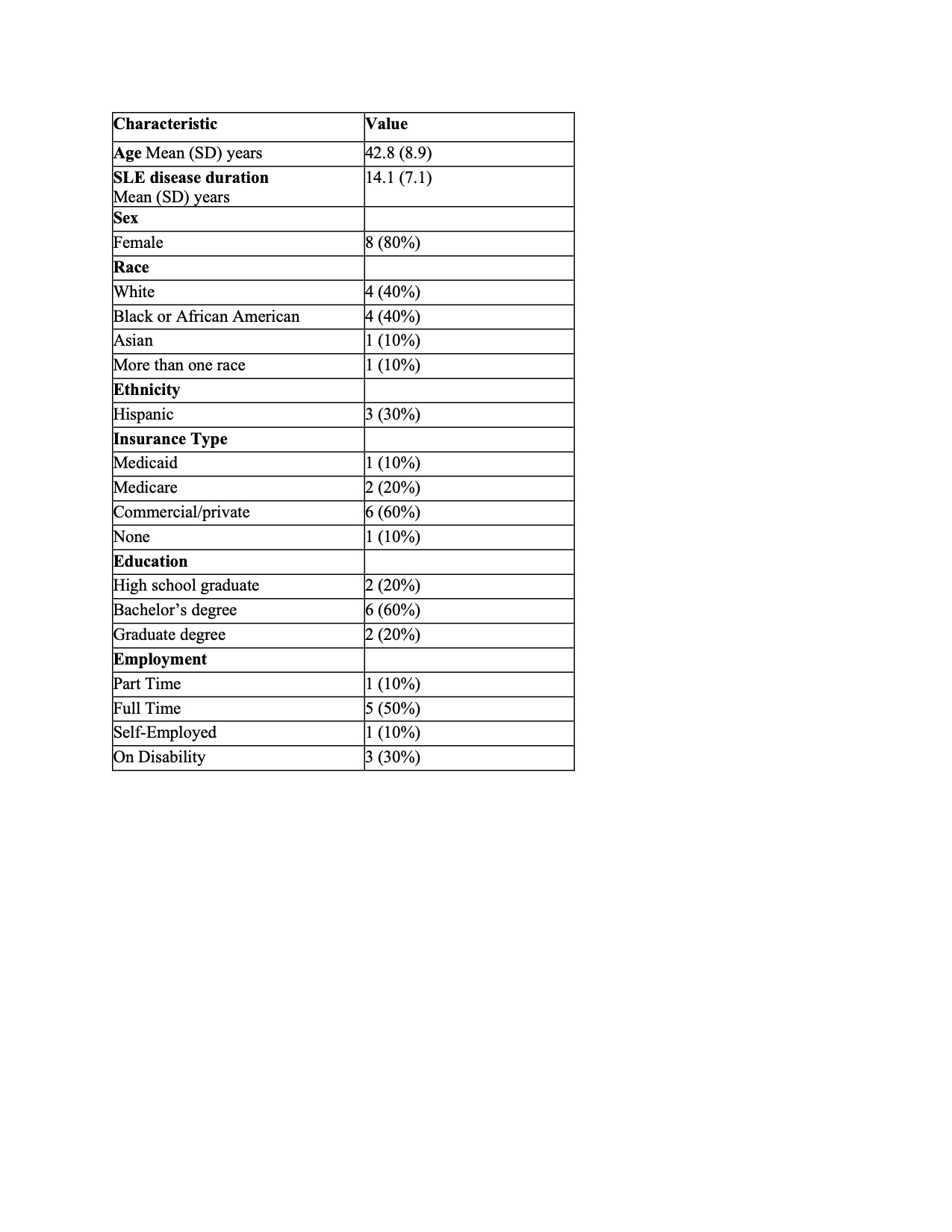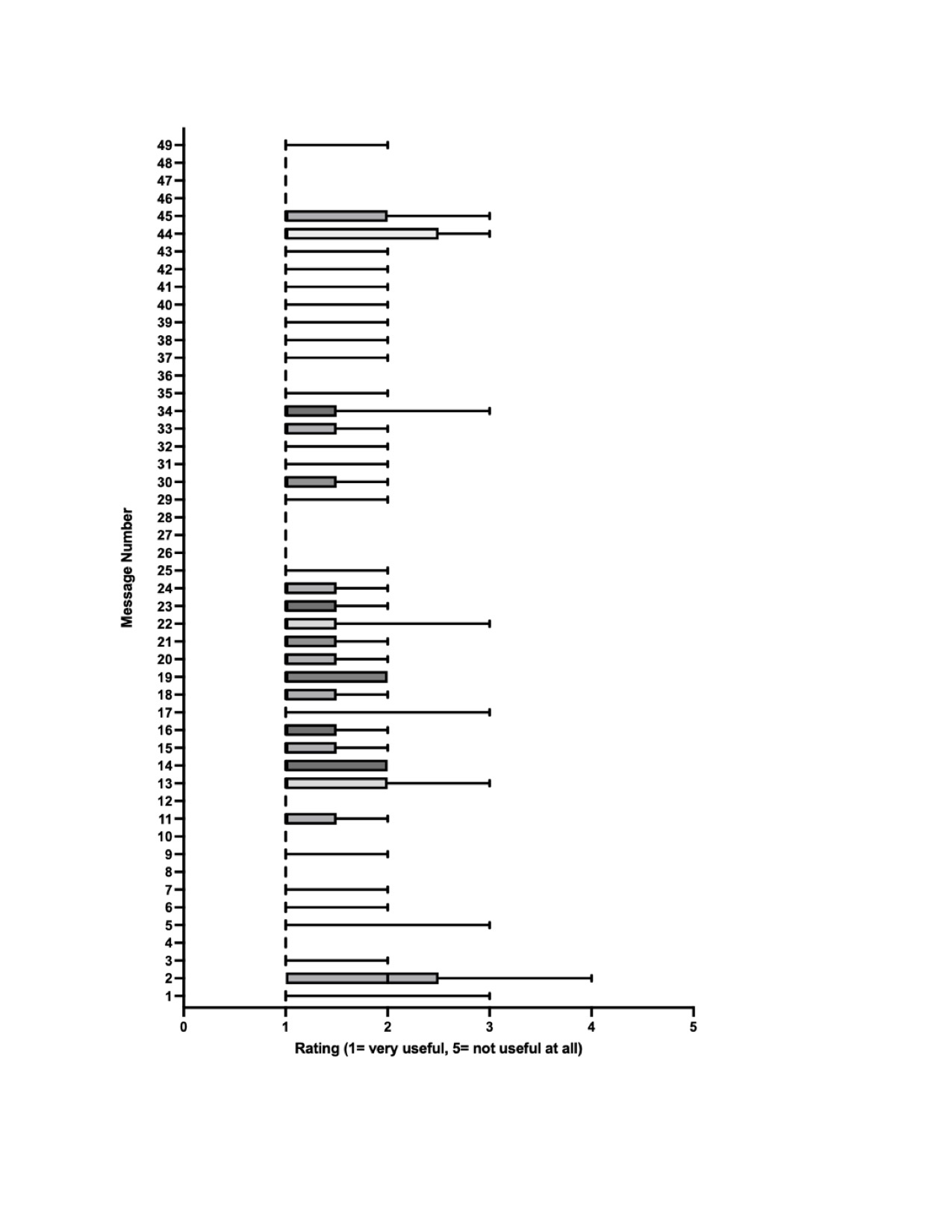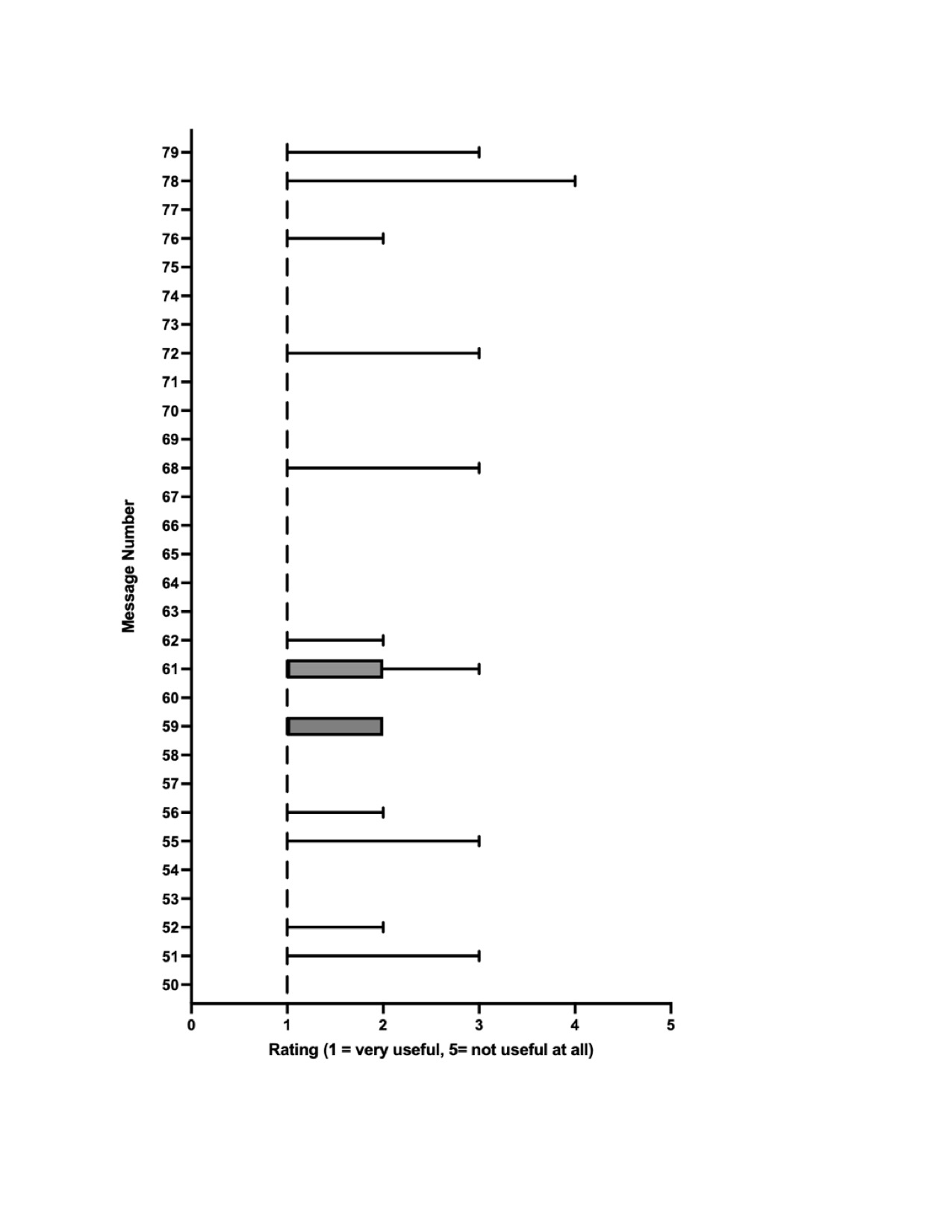Session Information
Session Type: Poster Session A
Session Time: 10:30AM-12:30PM
Background/Purpose: Fatigue is the single most prevalent symptom of systemic lupus erythematous (SLE), affecting 80-90% of patients, and is often refractory to pharmacologic therapy. Non-pharmacologic approaches, such as physical activity interventions, have shown promise in reducing fatigue, but have been limited by their lack of a rigorous approach to behavior change. Here we describe the development of a behavioral theory-based digital messaging intervention to increase physical activity and reduce SLE-related fatigue.
Methods: The digital messaging intervention was grounded in social cognitive and self-determination theories and was designed to promote physical activity and provide evidence-based information about SLE-related fatigue. Messages were: 1) adapted from a published behavioral theory-based physical activity messaging intervention and 2) created de novo to address themes previously identified as important to individuals with SLE. Messages were coded by content area and behavior change technique and written with attention to readability and autonomy-supportive language. Newly developed messages were then reviewed by individuals with SLE, who completed surveys rating message usefulness using a 5-point Likert scale. They provided open-ended feedback in semi-structured interviews conducted online via Zoom. Interviews were recorded and transcribed, and a thematic analysis was performed. Messages were refined based on participant feedback.
Results: A total of 148 messages were reviewed as part of the development project. 69 messages were modified from the published intervention, and 49 messages related to physical activity and 30 messages related to fatigue were created de novo. Ten individuals with SLE (Table 1) provided feedback on the 79 new messages. Overall, participants rated the messages highly (Figures 1 & 2), with an average message rating of 1.3 [out of 5, where 1 is highest]. Thematic analysis of interview feedback revealed three key themes: 1) mixed feelings around the term “lupus warrior”; 2) the importance of using autonomy-supportive messages; and 3) the importance of non-intimidating language around physical activity. Based on this feedback, 27 messages were modified, 4 were removed, and 11 new messages were created to provide additional patient-requested content.
Conclusion: We used a patient-centered approach to develop a digital messaging intervention for SLE-related fatigue that was grounded in behavior change theory. Patients rated the messages highly and provided feedback used to refine message content and language. The feasibility and efficacy of the messaging intervention will be evaluated in a future pilot study.
To cite this abstract in AMA style:
Deck A, Caras P, Singh K, Gore-Massy M, Chiu F, Folta S, Kasturi S. Development of a Theory-based Digital Messaging Program to Reduce Fatigue in Systemic Lupus Erythematosus [abstract]. Arthritis Rheumatol. 2024; 76 (suppl 9). https://acrabstracts.org/abstract/development-of-a-theory-based-digital-messaging-program-to-reduce-fatigue-in-systemic-lupus-erythematosus/. Accessed .« Back to ACR Convergence 2024
ACR Meeting Abstracts - https://acrabstracts.org/abstract/development-of-a-theory-based-digital-messaging-program-to-reduce-fatigue-in-systemic-lupus-erythematosus/



